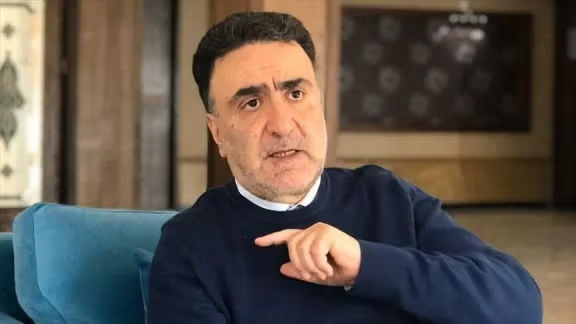In his recent note from Evin Prison entitled “New Era or Mirage” , the former advisor to reformist President Mohammad Khatami has outlined a long list of fundamental political and social reforms that only Khamenei can authorize. Without these changes, he believes, no real progress is possible.
These reforms include ending the Revolutionary Guard’s involvement in politics, economy, and diplomacy and a revision of the Constitution that would limit the powers of the Supreme Leader and his appointed bodies.
“I believe that changing governments without a shift in leadership strategies will not resolve the country’s issues or ensure the welfare of its citizens,” Tajzadeh asserted in his note. He also expressed support for some of the recent steps taken by Pezeshkian’s government, including several appointments.
He also insisted that Khamenei must make peace with the United States and end proxy wars in the region and give priority to the country’s economic and technological development in the same way that the first leader of the Islamic Republic, Ruhollah Khomeini, accepted UN Resolution 598, ending an eight-year war with Iraq in the 1980s.
Khomeini famously referred to the acceptance of the Resolution as drinking a “chalice of poison”.
Tajzadeh’s note comes amid ongoing debates among Iran's 'reformists' about whether Pezeshkian’s presidency marks a ‘new era’ or if his ‘national unity’ government—which he claims has Khamenei’s approval—is merely a scapegoat that will bear the blame if the country’s deep-rooted economic issues remain unresolved.
Prominent reformist journalist and politician Abbas Abdi is the leading proponent of the idea of a ‘new era’ with Pezeshkian’s presidency. Abdi argues that Khamenei has accepted the necessity of change and insists that reformists like Tajzadeh should not make ‘radical’ demands that may put him off.
Here’s an improved version:
Last week, Abdi called on the authorities to release Tajzadeh, who has been serving an eight-year sentence for his political activities over the past two years. This appeal came after Tajzadeh was informed of a new five-year sentence. Abdi himself has been convicted of “spreading lies and writing against the Constitution” and is currently awaiting sentencing.
There are also those who argue that Khamenei did not allow Pezeshkian—endorsed by most reformists—to win the Presidency in order to usher in a new era, and that he had no intention of initiating fundamental political, cultural, and social reforms.
Instead, they believe, the Supreme Leader only wants difficult and unavoidable economic "surgeries" including increasing the prices of fuel, electricity, and other subsidized commodities and services to be carried out by Pezeshkian’s government.
According to Tajzadeh, these critics argue that everyone—especially the ruling establishment—will benefit if the new government succeeds in making and implementing "difficult economic decisions." They suggest that if the government succeeds, the Leader will avoid criticism, while reformists will bear the blame if it fails.
Tajzadeh warned Khamenei in his note that he must never think he can “survive through crises” by giving a share in government to reformists and by implementing the difficult economic reforms that he knows cannot be avoided “without fundamental political, cultural, social, and diplomatic changes.”







